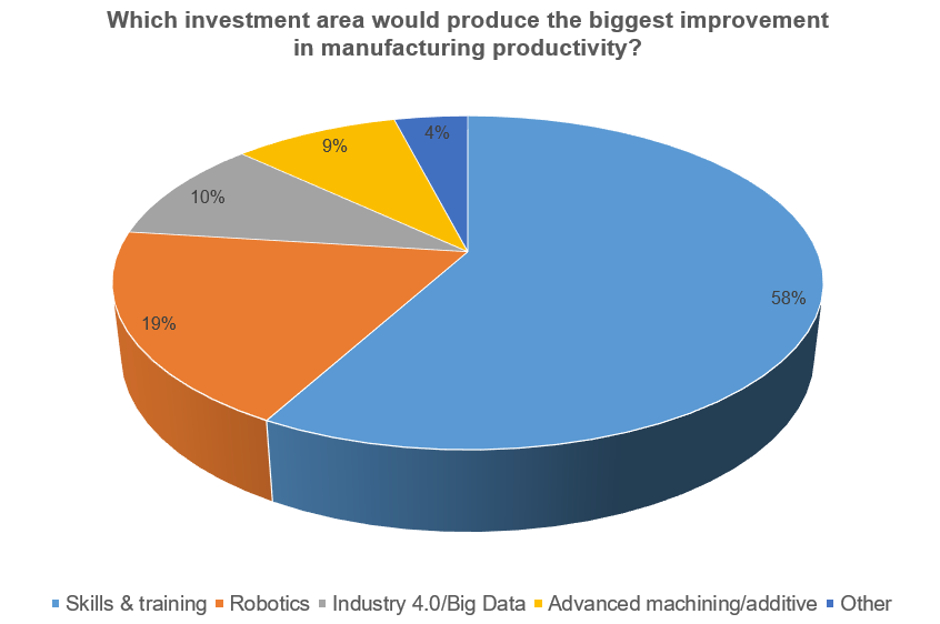
Since the 2015 general election we’ve heard a lot from government about their plans to improve productivity and make the UK the richest of all the major economies by 2030.
Similar proclamations were made in the Budget on November 22, 2017, and the publication of the government’s Industrial Strategy white paper on November 27, 2017 identifies the ways in which government, industry and academia can collaborate to pull the UK up the G7 productivity rankings and boost prosperity.
There are many targets for investment that have been suggested as a solution to raising industrial productivity, and we asked Engineer readers what they thought would be most effective.
The majority of respondents (58 per cent) thought skills and training as foremost in the battle to improve productivity, an issue addressed in part in the chancellor's Budget, which allocated funds toward to education and training.
Just under a fifth (19 per cent) thought robotics the key focus area, whilst 10 per cent opted for Industry 4.0/Big Data. Of the remaining 13 per cent, nine per cent thought advanced machining/additive the key area for improved productivity, and four per cent went for 'other', an option that encouraged participants specify their alternative solution to the productivity puzzle.
Of those in the 'other' four per cent, Another Steve said: ‘The weak link for UK industry, in my opinion, is middle management. Too many managers with no qualifications, winging it or learning on the job. Doesn’t matter how good the technical staff are if their managers aren’t competent. This directly affects productivity.’
Andyg added: ‘Give the right motivation. Give people pride in what they do, why they do it and its place in the scheme of things. Treat staff like people – not “resources”. Provide good career structures, pensions etc. Recognise that productive does not equal cheap. There is too much emphasis on cheap – not enough on quality – viz the austerity programme. It seems that all the emphasis is on driving down costs and not enough on raising quality and value. But then that’s the basic flaw with a system based on infinite growth.
Ian Downie commented: ‘The best way to start improving productivity would be to remove all the non-value added activities from our daily work. Such as irrelevant training. Someone told whoever is in charge that training is a good thing, so as soon as someone thinks of new training, like how to use a ladder, they send us all on the course, whether we will ever use a ladder or not. Almost every week we are sent to irrelevant training and irrelevant meeting.’
What do you think? Keep the conversation flowing in Comments below.
Click here to read The Engineer's latest blog post on Britain's productivity crisis





IEA report claims batteries are ‘changing the game’
Oh I don't know. The typical waiting time outside of A&E for admitting patients would give them plenty of time to recharge … ?